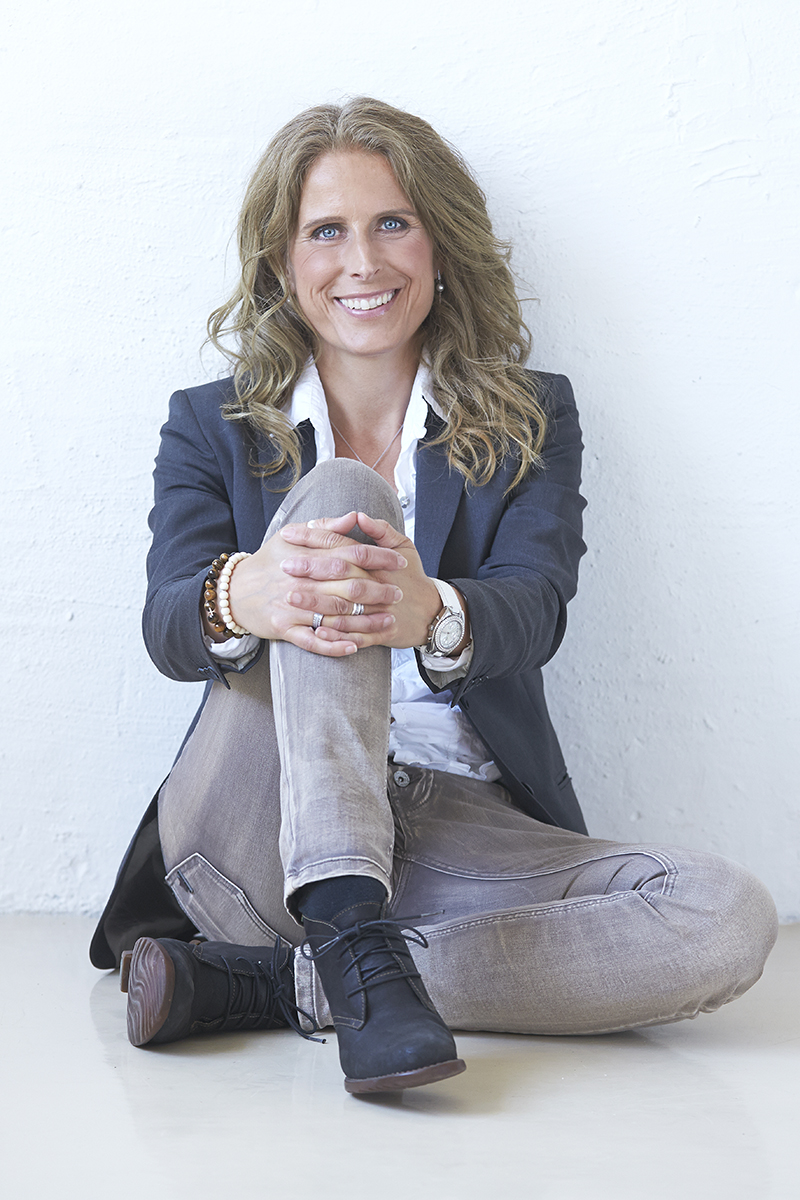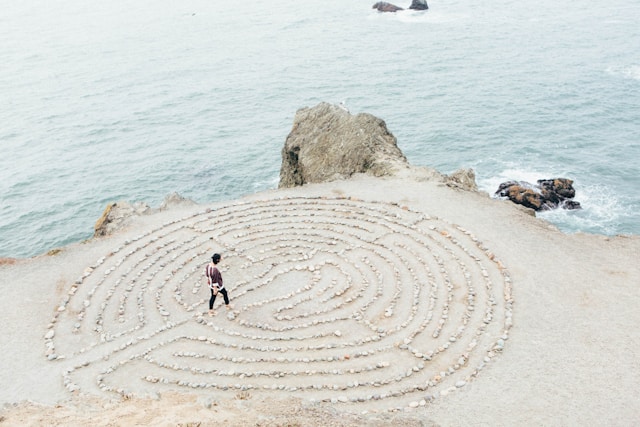Cultivating Inner Strength in a Changing World
In our journey through life, we often find ourselves seeking external sources of stability and support. We lean on friends, family, mentors, and even self-help books to guide us through turbulent times. But what if the most reliable source of strength has been within us all along? What if we could become our own unwavering rock, standing firm amidst life's storms?
This concept of being our own rock isn't about isolation or rejecting support from others. Rather, it's about developing an inner resilience that allows us to navigate life's challenges with grace and confidence. It's about cultivating a sense of self that remains steady, even when everything around us seems to be in flux.
Within this post, we'll explore how we can build this inner strength, drawing from fields such as positive psychology, neuroscience, and personal development. We'll discuss strategies for overcoming difficulties, fostering personal growth, and transforming obstacles into opportunities. Let's embark on this journey of self-discovery and empowerment together.
The Mind Architect
With a career spanning over two decades, Sagar Constanti has morphed from orchestrating prime-time television as a director at the Danish Broadcasting Corporation to orchestrating personal and professional transformations across the globe.
Now a sought-after lecturer, Sagar's client roster reads like a who's who of industry titans - LEGO, Novo Nordisk, TOTAL energies, and various Government Agencies. But it's not just big names that draw her attention. Sagar's true passion lies in unlocking human potential, weaving together threads of Emotional Intelligence, Positive Psychology, Neuroscience, and Personal Leadership to create a tapestry of growth and change.

Sagar's journey is as multifaceted as her expertise. A trained psychotherapist, she's the mastermind behind The Essence personality test and has penned eight books, including her latest, "Be Your Own Rock". Whether she's addressing a boardroom or a conference hall, Sagar's blend of psychological insight, real-world experience, and infectious enthusiasm ensures her audience walks away not just inspired, but armed with practical tools to architect their own minds and futures.
Understanding Our Inner Landscape
Before we can become our own rock, we need to understand the terrain of our inner world. This involves developing a keen sense of self-awareness and emotional intelligence.
Cultivating Self-Awareness
Self-awareness is the foundation upon which we build our inner strength. It involves recognizing our thoughts, emotions, and behaviors, and understanding how they influence our actions and decisions. By developing self-awareness, we can identify our strengths and areas for growth. We can recognize our emotional triggers and learn to manage them, and align our actions with our values and goals.
To cultivate self-awareness, we can practice mindfulness meditation, keep a reflective journal, or seek feedback from trusted friends and mentors. These practices help us tune into our inner world and gain clarity about our thoughts, feelings, and motivations.

Developing Emotional Intelligence
Emotional intelligence goes hand in hand with self-awareness. It's our ability to recognize, understand, and manage our own emotions, as well as to empathize with others. By honing our emotional intelligence, we can navigate social situations more effectively, build stronger relationships, and make more balanced decisions, even in stressful situations.
We can improve our emotional intelligence by practicing active listening, working on our empathy, and learning to regulate our emotional responses. These skills not only help us understand ourselves better. But also enhance our interactions with others, creating a solid foundation for personal and professional growth.
Building Our Resilience
Resilience is our ability to bounce back from adversity. It's what allows us to weather life's storms and emerge stronger on the other side. Here are two key strategies for building resilience:
Adopting a Growth Mindset
A growth mindset, as coined by psychologist Carol Dweck, is the belief that our abilities and intelligence can be developed through effort, learning, and persistence. When we adopt a growth mindset, we see challenges as opportunities for growth rather than insurmountable obstacles. This perspective allows us to embrace challenges instead of avoiding them, persist in the face of setbacks, and learn from criticism and use it to improve.

Practicing Self-Compassion
Self-compassion involves treating ourselves with the same kindness and understanding that we would offer a good friend. It's about recognizing that imperfection is a part of the shared human experience. By practicing self-compassion, we can reduce self-criticism and negative self-talk, recover more quickly from failures and setbacks, and build emotional resilience.
We can cultivate self-compassion by speaking to ourselves kindly, acknowledging our shared humanity, and practicing mindfulness. These practices help us develop a more nurturing relationship with ourselves. Providing a solid emotional foundation from which we can face life's challenges.
Navigating Change and Uncertainty
Change is an inevitable part of life, but it can often feel overwhelming. By developing strategies to navigate change and uncertainty, we can become more adaptable and resilient.
Embracing Flexibility
Flexibility is key to adapting to change. It involves being open to new ideas and ways of doing things. By cultivating flexibility, we can adapt more easily to new situations, find creative solutions to problems, and reduce stress in the face of unexpected changes. We can practice flexibility by intentionally stepping out of our comfort zones, trying new experiences, and challenging our assumptions.
Focusing on What We Can Control
In times of uncertainty, it's easy to feel overwhelmed by all the things that are beyond our control. By shifting our focus to what we can control, we can reduce anxiety and stress, take productive action, and maintain a sense of purpose and direction. We can practice this by identifying the aspects of a situation we can influence and taking action on those areas, while accepting what we cannot change.

Cultivating a Growth Mindset
Developing a growth mindset is crucial when navigating change and uncertainty. This mindset sees challenges as opportunities for learning and growth rather than insurmountable obstacles. With a growth mindset, we view our abilities and intelligence as qualities that can be developed through effort, learning, and persistence. This perspective helps us approach change with curiosity and optimism, rather than fear and resistance. We can foster a growth mindset by embracing challenges and viewing failures as learning experiences. And by celebrating the process of growth and improvement, not just the end results.
As we continue to explore and debate these new approaches to healing, it's important to keep an open mind while also maintaining a critical perspective. The future of healthcare likely lies in finding a balance between the best of conventional and alternative medicine.
Transforming Obstacles into Opportunities
Every challenge we face is an opportunity for growth and learning. By reframing our perspective on obstacles, we can turn them into stepping stones for personal development.
Practicing Cognitive Reframing
Cognitive reframing is a powerful technique that involves changing the way we perceive an event or situation. By reframing our challenges, we can find the silver lining in difficult situations, reduce stress and anxiety, and discover new opportunities for growth and learning. We can practice cognitive reframing by asking ourselves questions like "What can I learn from this?" or "How might this challenge help me grow?"
Setting Meaningful Goals
Setting meaningful goals can provide us with direction and purpose, especially during difficult times. By setting and pursuing goals that align with our values, we can stay motivated in the face of challenges, find meaning in our struggles, and measure our progress and celebrate our growth. We can set meaningful goals by reflecting on our values, visualizing our ideal future, and breaking down large goals into smaller, achievable steps.

Embracing Adversity as a Catalyst for Growth
Adversity, when approached with the right mindset, can be a powerful catalyst for personal growth and development. Instead of viewing difficulties as setbacks, we can see them as opportunities to build resilience, develop new skills, and discover hidden strengths. This perspective allows us to tap into our innate ability to adapt and overcome. We can embrace adversity by consciously choosing to face challenges head-on, seeking lessons in every obstacle, and celebrating the personal growth that emerges from difficult experiences. By doing so, we not only overcome immediate obstacles but also cultivate a mindset of continuous improvement and resilience that serves us well in all aspects of life.
Cultivating Our Inner Resources
Becoming our own rock involves developing a rich tapestry of inner resources that we can draw upon in times of need. These resources form the core of our resilience and adaptability. A positive self-image acts as our internal cheerleader, reminding us of our worth and capabilities when self-doubt creeps in. A strong sense of purpose provides direction and motivation, helping us navigate through life's complexities. A diverse toolkit of coping strategies equips us to handle a wide range of challenges, from stress management techniques to problem-solving skills. Equally important is a support network of positive relationships, reminding us that while we can be our own rock, we don't have to face life's challenges in isolation.
Cultivating these inner resources is an ongoing journey of self-discovery and personal growth. It involves consistent self-reflection, where we take time to understand our thoughts, emotions, and behaviors. This self-awareness allows us to identify areas for improvement and celebrate our progress. Personal growth work might include reading self-help books, attending workshops, or working with a therapist or coach. Intentional relationship building is also crucial, nurturing existing connections and being open to forming new ones with people who support our growth and wellbeing.

As we develop and strengthen these inner resources, we become more resilient and adaptable in the face of life's inevitable challenges. We learn to bounce back from setbacks more quickly, viewing them as opportunities for growth rather than insurmountable obstacles. Our enhanced adaptability allows us to navigate change with greater ease and confidence. By cultivating our inner resources, we're not just preparing for adversity – we're enriching our daily lives and empowering ourselves to thrive in all circumstances.
The TAKEAWAY
As we stand at the crossroads of personal growth and societal change, the concept of being our own rock takes on new significance. In a world that often feels chaotic and unpredictable, our ability to cultivate inner strength isn't just a personal asset - it's a catalyst for broader transformation.
Imagine a society where each individual has developed the resilience to face challenges head-on, the emotional intelligence to navigate complex relationships, and the self-awareness to continuously evolve. This isn't just a utopian dream; it's a tangible possibility that begins with each of us committing to this journey of self-discovery and growth.

The ripple effects of this personal transformation are profound. As we become more grounded in our own strength, we're better equipped to lift others up. Our newfound resilience allows us to be there for our loved ones in times of need, our enhanced emotional intelligence fosters more meaningful connections in our communities, and our self-awareness helps us contribute more authentically to our workplaces and society at large. By embracing this journey to become our own rock, we're not just changing our own lives - we're laying the foundation for a more resilient, compassionate, and interconnected world.


